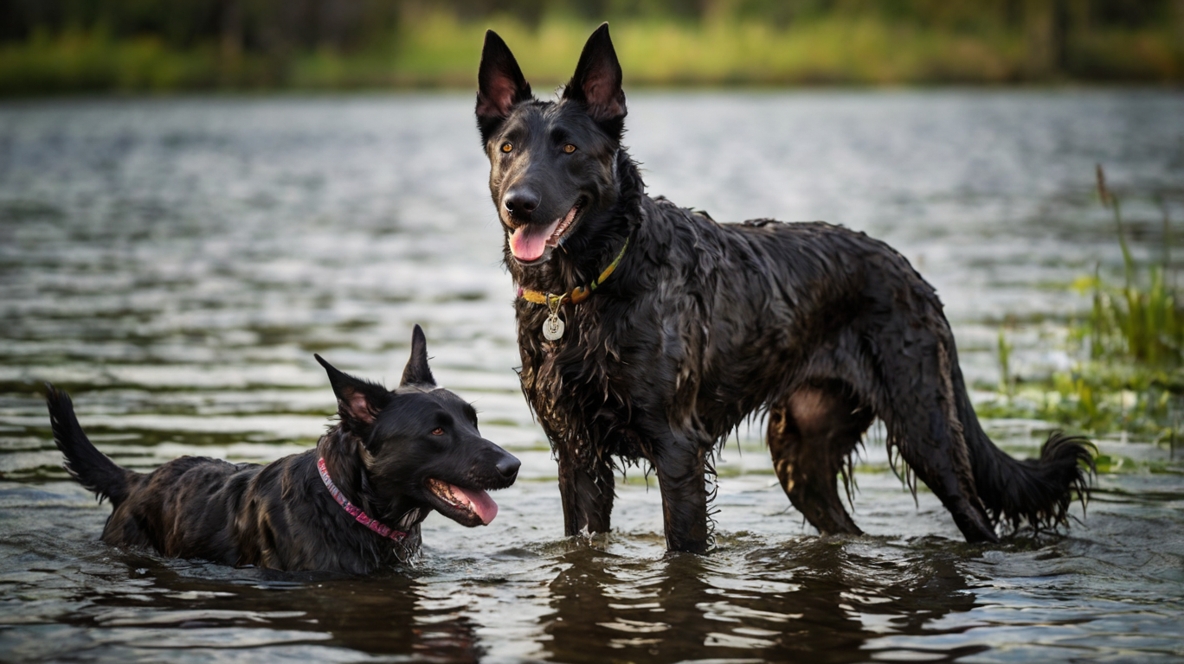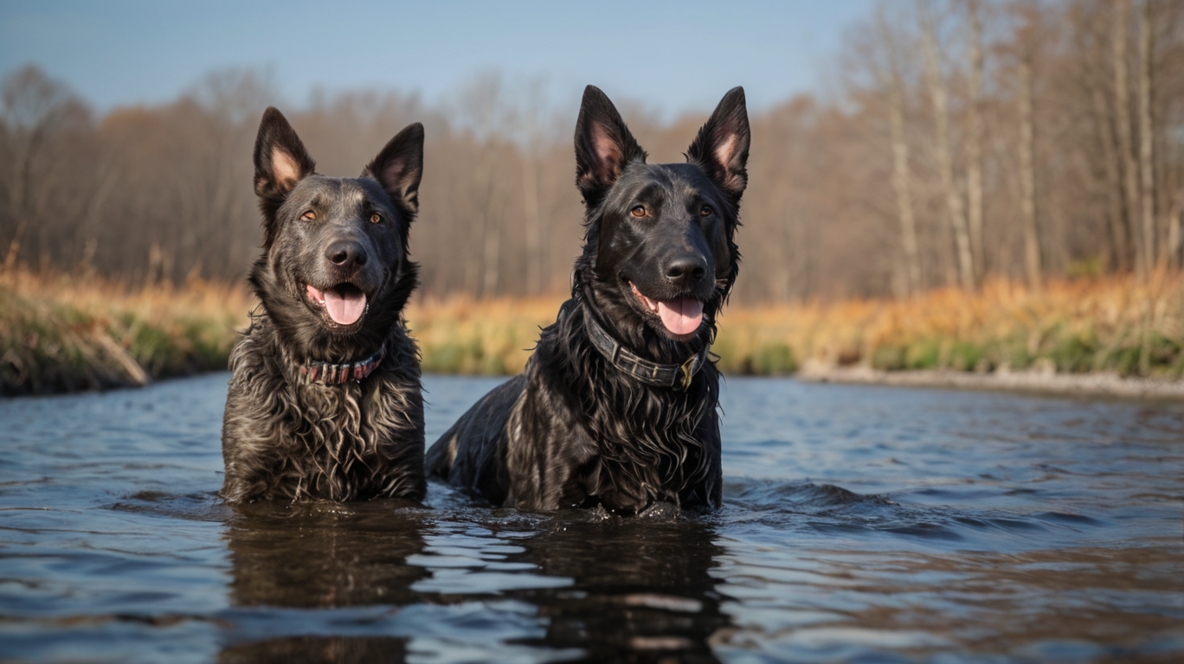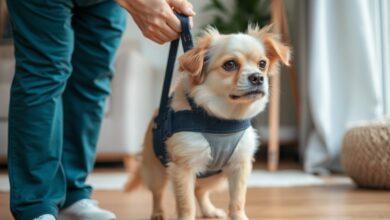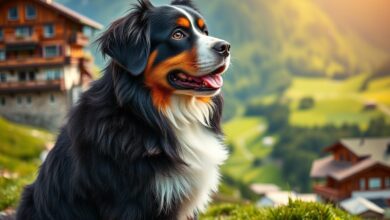Dog Breeds Netherlands – Popular Choices

It’s imperative to choose the right dog breed that suits your lifestyle and preferences, especially if you are considering a furry companion from the Netherlands. With a rich heritage of intelligent and versatile breeds, such as the Dutch Shepherd and Friesian Water Dog, you’ll find options that can be both loyal companions and wonderful family pets. In this blog post, you will discover the most popular dog breeds in the Netherlands, their unique characteristics, and what makes them perfect for your home and lifestyle.

Key Takeaways:
- Diverse Breeds: The Netherlands is home to a variety of dog breeds, including both native breeds like the Hollandse Herder and imported ones that are popular among local dog owners.
- Functionality: Many breeds favored in the region, such as the Dutch Shepherd, are known for their versatile abilities, including herding, guarding, and obedience.
- Family-Friendly: Breeds like the Golden Retriever and Labrador Retriever are widely popular due to their gentle temperament and suitability for families with children.

Overview of Dutch Dog Breeds
To understand the essence of Dutch dog breeds, you should explore their rich history and distinctive qualities. The Netherlands is home to a variety of dog breeds, each with unique backgrounds, purpose, and temperament. From traditional working dogs to nurturing family companions, these breeds reflect the country’s diverse culture and strong bond with dogs. You will discover that they not only serve as loyal pets but also showcase a legacy of practicality and admiration for canines.
Historical Significance
Significance lies in the fact that Dutch dog breeds have evolved alongside the needs of their society. Many breeds were originally developed for specific tasks such as herding, guarding, and hunting, which played a vital role in the rural and urban communities of the Netherlands. Through centuries of selective breeding, these dogs have maintained traits that speak to their adaptation and functionality, making them valuable assets to their owners.
Characteristics and Traits
With a variety of breeds, Dutch dogs possess an array of distinct characteristics that appeal to many dog lovers. These traits can range from intelligence and loyalty to energy levels and grooming needs. When deciding on a Dutch breed, you should consider how these traits align with your lifestyle and preferences.
Another crucial aspect to note is that Dutch dog breeds often exhibit a balanced temperament, making them suitable for families or individuals. Many are known for their great adaptability to different environments, whether it’s city living or rural settings. Additionally, they tend to be affectionate and protective, fostering strong bonds with their owners. However, depending on the breed, you may encounter varying levels of trainability and exercise requirements, which are crucial to master for a harmonious relationship with your furry friend.
Popular Dog Breeds in the Netherlands
Any dog lover in the Netherlands will find a variety of breeds that not only thrive in the local environment but also complement the lively Dutch lifestyle. Among these breeds, the Dutch Shepherd and Frisian Water Dog stand out as favorites, embodying the country’s rich heritage and adaptability. Each dog offers unique characteristics and makes a great companion for families, singles, or active individuals.
Dutch Shepherd
With a blend of intelligence, loyalty, and versatility, the Dutch Shepherd is a popular choice for your family. Known for their striking coat and friendly demeanor, these dogs excel in various roles, including working as police or search and rescue dogs. Their athleticism and eagerness to please make them excellent companions for an active lifestyle.
Frisian Water Dog
One breed that has gained recognition is the Frisian Water Dog, a strong and intelligent companion known for its love of water. This breed’s unique wavy coat not only adds to its charm but also provides protection while swimming. They are highly trainable and enjoy engaging in various activities, making them great partners for you and your active lifestyle.
Another aspect of the Frisian Water Dog is its history as a versatile working dog in the Netherlands. Originally bred to assist fishermen by retrieving nets and catching fish, these dogs possess an innate affection for water, making them ideal for aquatic endeavors. They are highly intelligent, which means you can easily train them for various tasks and activities. However, they require consistent exercise and mental stimulation to prevent boredom and ensure they remain well-behaved. Their friendly and loyal nature makes them perfect for families, but remember that their affinity for water means you should always supervise them near bodies of water.
Unique Breeds of the Netherlands
For dog lovers looking for something distinct, the Netherlands offers unique breeds that showcase the country’s rich heritage. These breeds are not only exceptional companions but also reflect the cultural significance of dogs in Dutch society. From charming personalities to specific working abilities, these breeds stand out and are a proud representation of the Netherlands’ dedication to canine excellence.
Kooikerhondje
An adorable small to medium-sized dog, the Kooikerhondje is known for its stunning orange and white coat and soulful eyes. Originally bred as a waterfowl retriever, this breed is lively, intelligent, and friendly, making it an excellent family pet. They’re also quite agile, showcasing great enthusiasm during playtime, while their affectionate nature ensures they connect well with children and adults alike.
Mechelse Herder
For those seeking a loyal and versatile dog, the Mechelse Herder is an exemplary choice. Known for their intelligence and agility, these shepherds excel in various roles, including working as police and service dogs. Their strong drive and energy make them ideal for active families or individuals who enjoy outdoor activities.
It’s important to understand that the Mechelse Herder requires ample physical and mental stimulation. Without proper engagement, they may develop behavioral issues due to their high energy levels. This breed is incredibly loyal and protective, making them excellent guardians, but can also be wary of strangers. They thrive on consistent training and socialization from a young age to harness their natural abilities positively. Whether you’re a seasoned dog owner or new to the canine world, investing time in their upbringing will yield a devoted and loving companion.
Factors Influencing Dog Popularity
Now, the popularity of dog breeds in the Netherlands is shaped by several factors, including:
- Size of the dog
- Temperament and ease of training
- Activity level required
- Grooming needs
- Family suitability
After considering these factors, you can better understand which breeds are favored by dog owners in the region.
Lifestyle Compatibility
Factors such as your living space, daily routine, and family dynamics play a crucial role in determining which dog breeds are suitable for you. It’s important to consider the energy levels and social needs of different breeds to ensure a harmonious match that fits well with your lifestyle.
Breed Recognition
Lifestyle influence extends to the recognition of various breeds by kennel clubs and organizations. This recognition often boosts a breed’s popularity, as more people tend to choose dogs that are officially acknowledged. Your choice can be influenced by the prestige of a breed and its history within the community.
To ensure you select a breed that aligns with your preferences, you should consider the official recognition from organizations like the Fédération Cynologique Internationale (FCI) or local clubs. These bodies often endorse breeds based on their unique characteristics and suitability for various lifestyles. Pay attention to breed popularity trends, as they can indicate the level of support and community you might find while enjoying the companionship of your chosen dog.
Adoption Trends in Dutch Dog Breeds
Despite the popularity of various Dutch dog breeds, there has been a notable shift towards adoption rather than purchasing. Many potential pet owners are increasingly seeking rescue dogs, who can offer companionship and love, while also providing you with the satisfaction of giving a homeless dog a second chance. As awareness grows about the importance of rescuing animals from shelters, you’ll find that Dutch breeds, alongside many others, are finding their forever homes.
Rescue Organizations
Rescue organizations play a crucial role in connecting you with dogs in need of homes. They dedicate their time to rehabilitating and rehoming Dutch dog breeds that may have faced unfortunate circumstances. By collaborating with local shelters, these organizations ensure that you have access to a wide range of dogs, each with unique backgrounds and personalities, allowing you to find your perfect match.
Responsible Breeding Practices
Trends in responsible breeding practices are increasingly taking center stage in the Dutch dog community. These practices prioritize the health and well-being of dogs by focusing on ethical breeding standards and genetic screening to reduce health issues. You should seek breeders who are committed to promoting the vitality and temperament of their dogs, ensuring you bring home a companion that fits well into your lifestyle.
Adoption is a wonderful option, but if you consider purchasing from breeders, it’s crucial to prioritize responsible breeding practices that emphasize health, temperament, and ethical treatment. This means looking for breeders who are transparent about genetic testing and who prioritize the welfare of their dogs throughout their lives, not just during the sale. By supporting such practices, you help to mitigate the risks of health issues and promote the overall quality of the dog breeds in the Netherlands.

Training and Care for Dutch Breeds
Unlike many other dog breeds, Dutch breeds often require a structured approach to training and care. Their intelligent and eager-to-please nature makes them highly trainable, but consistent, positive reinforcement methods are imperative. To learn more, visit Top 10 Dutch Dog Breeds Information – Facts & Pictures for resources to help you effectively train your furry companion.
Behavioral Considerations
The temperament of Dutch breeds can vary, so it’s crucial to understand their individual needs. Early socialization and exposure to different environments will help in minimizing anxiety and behavioral issues. Keep in mind that consistent training will lead to a well-mannered pet.
Health and Well-being
Care for Dutch breeds involves regular veterinary check-ups and a balanced diet to ensure optimal health. You should also incorporate exercise into their daily routine to fend off obesity and maintain overall well-being.
Dutch breeds can be prone to certain health issues, such as hip dysplasia and skin conditions. It’s crucial to monitor your dog’s weight and activity levels, as these factors can greatly impact their longevity and quality of life. Regular veterinary care and proper nutrition will help you spot potential problems early, leading to better health outcomes for your beloved companion.
To wrap up
Now that you have explored the popular dog breeds originating from the Netherlands, you can confidently choose the perfect furry companion for your lifestyle. Whether you’re drawn to the loyal Dutch Shepherd or the charming Kooikerhondje, these breeds offer unique qualities that cater to different needs and preferences. To research deeper into the characteristics and care requirements of Dutch dog breeds, check out this resource on Dutch dog breeds | Inumonogatari – WordPress.com. Happy pet parenting!
FAQ
Q: What are some of the most popular dog breeds in the Netherlands?
A: The Netherlands is known for several popular dog breeds, including the Dutch Shepherd, Keeshond, and the Dutch Smoushond. The Dutch Shepherd is an intelligent working dog known for its versatility in various roles such as police and search-and-rescue work. The Keeshond is recognized for its distinctive fluffy coat and lively personality, making it a favorite as a family companion. Lastly, the Dutch Smoushond is a small, friendly breed originally bred for ratting and companionship, showcasing a charming character alongside its usefulness in urban settings.
Q: What characteristics should I consider when choosing a Dutch dog breed?
A: When deciding on a Dutch dog breed, consider several key characteristics including size, temperament, energy levels, and grooming needs. For example, if you are looking for an active companion, breeds like the Dutch Shepherd may suit you due to their high energy and athleticism. Conversely, if you prefer a calmer pet, the Keeshond might be a better fit. It’s also important to assess how much time you can dedicate to grooming; for instance, the Keeshond requires regular grooming to maintain its thick coat, while other breeds may be more low-maintenance. Understanding your lifestyle and preferences will help you make the best choice for your household.
Q: Are Dutch dog breeds suitable for families with children?
A: Many Dutch dog breeds are well-suited for families with children. Breeds like the Keeshond and Dutch Smoushond are known for their friendly and affectionate nature, which typically makes them excellent companions for kids. They tend to be gentle and playful, which can foster a positive bond with children. However, it is vital to consider the dog’s temperament and energy levels, as well as to supervise interactions between dogs and young children to ensure safety and positive experiences for both. Socializing the dog from a young age and providing adequate training can help create a harmonious environment for families.





